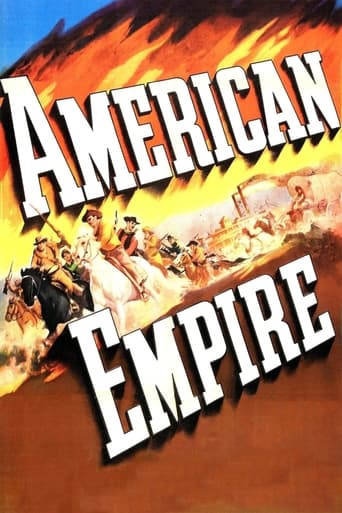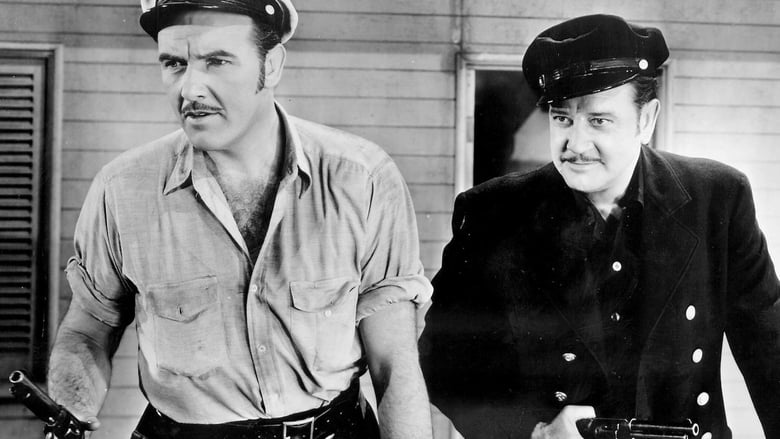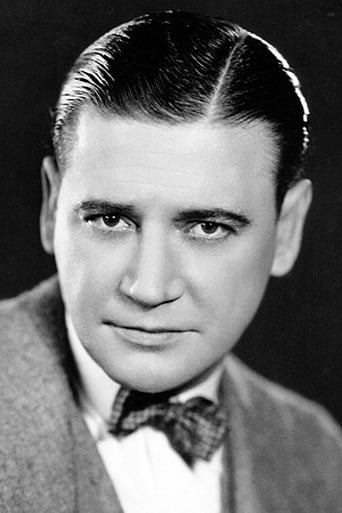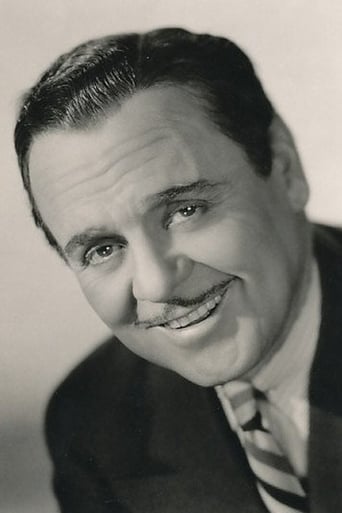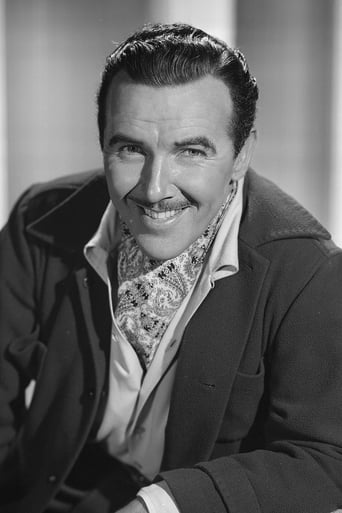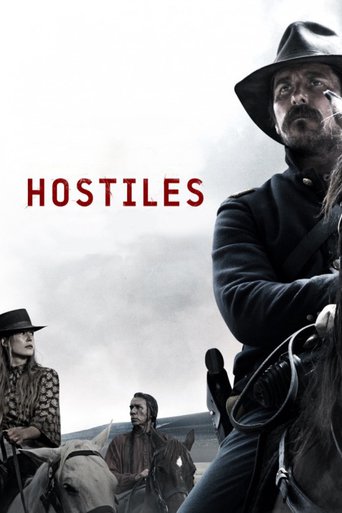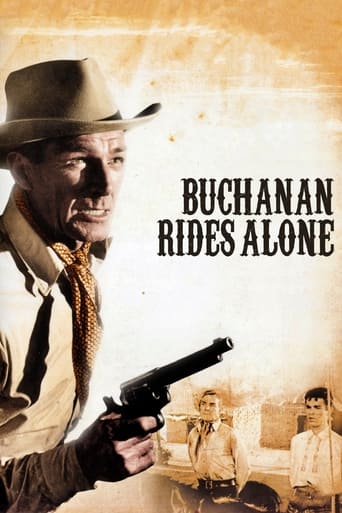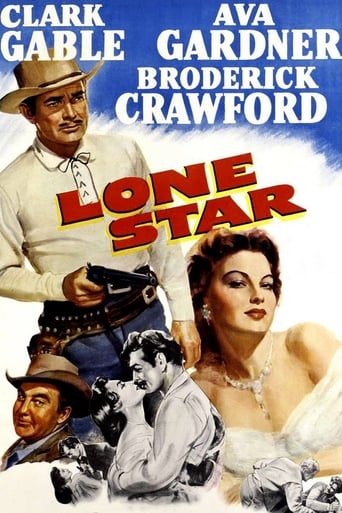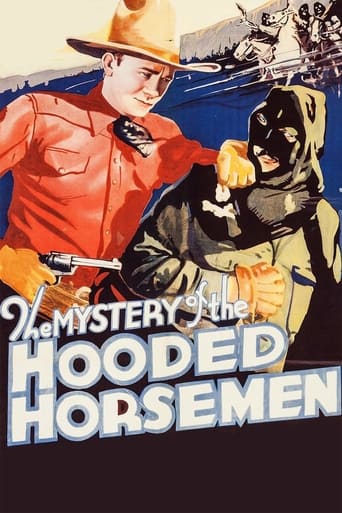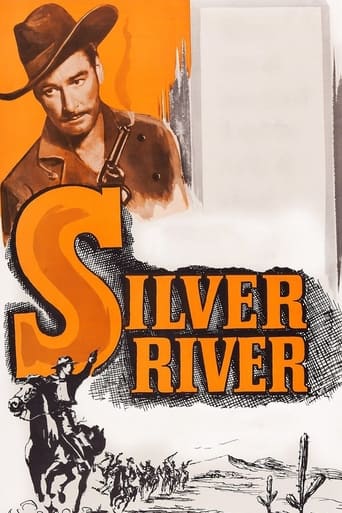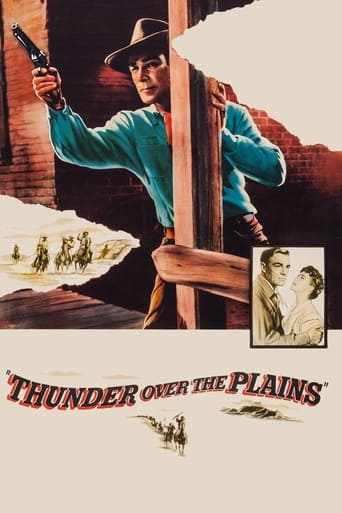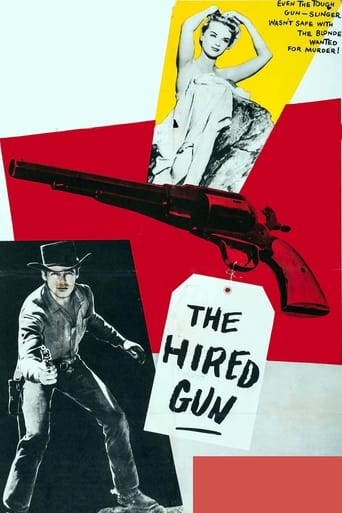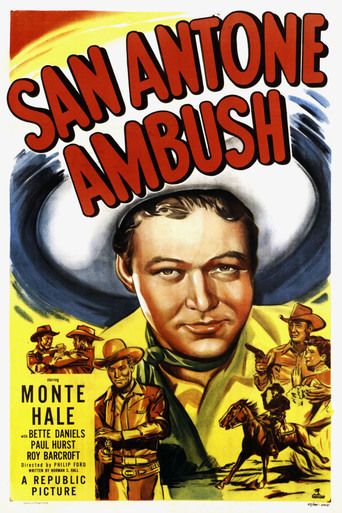American Empire (1942)
Richard Dix as Dan Taylor and Preston S. Foster as Paxton Bryce are two longtime friends seeking their fortune in Texas after the war. The two men decide, not without problems, to establish a cattle empire. Paxton becoming too ambitious, distances himself from Dan and Abby, Paxton's wife. It will only be after a personal tragedy that he will come back to his senses.
Watch Trailer
Cast
Similar titles
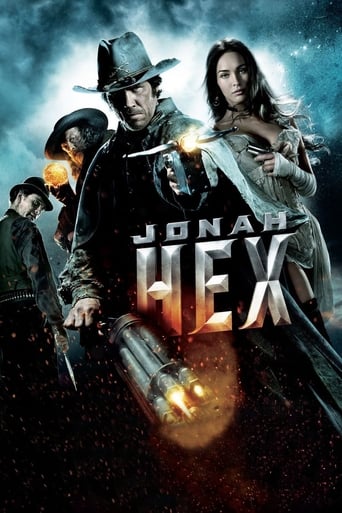
Reviews
How sad is this?
Excellent, Without a doubt!!
At first rather annoying in its heavy emphasis on reenactments, this movie ultimately proves fascinating, simply because the complicated, highly dramatic tale it tells still almost defies belief.
An old-fashioned movie made with new-fashioned finesse.
For what remained of his lengthy screen career, Richard Dix was always overshadowed by his work in Cimarron (1931). As a further example of this fact, this 13 December 1942 release, produced by Harry "Pop" Sherman, can be seen as a later attempt to cash in on Dix's self-sustaining image. American Empire was a surprisingly elaborate production by Pop's standards, and the New York Times reviewer astutely noted that Sherman "has climaxed an otherwise well-behaved drama with a reel that explodes in all directions." (In fact, the rest of the drama was far too sedate, far too well-behaved and far too over-primed with dull "additional dialogue" in my opinion).Anyway, after appearing as the Indian hero of The Vanishing American (1925), Dix had quite a career in the western film genre. He was Joaquim Murietta in The Gay Defender (1928) and an Indian again in Redskin (1929). After the award-winning Cimarron, resolute Richard performed similar chores in The Conquerors (1932). RKO then starred Dix as Pecos Smith in Zane Grey's West of the Pecos (1934), as a marshal in The Arizonian, and as a miner in Yellow Dust (1936). Dix then turned to comedy as a washed-up cowboy star in Columbia's It Happened in Hollywood (1936). However, Dix returned to his established form in Republic's expansive Man of Conquest (1939), playing the greatly admired Texas hero, Sam Houston. Moving on into the forties, Dix was an Oklahoma Territory marshal in Cherokee Strip (Paramount, 1940), a rancher in The Roundup (Paramount, 1941), and received special billing as Wild Bill Hickok in Badlands of Dakota (Universal, 1941). Next up, he impersonated Wyatt Earp in Tombstone, the Town Too Tough to Die (Paramount, 1942), became a gunfighter in Buckskin Frontier (United Artists), and followed up as a marshal in his final western, The Kansan (United Artists, 1943). Although first-billed in American Empire (and given more than his share of boring additional dialogue), Dix actually has the second lead. He even disappears from the plot for a spell halfway through and then re-appears to save the day at the elaborately staged, thrill-a-second climax. Although billed third, it's the boring Preston Foster who takes the reins in Dix's absence. As for Leo Carillo, he enacts his role with his usual strenuously unfunny "comic" accent even though he plays the villain. In real life, Carillo spoke in the same, quietly measured tones as Ronald Reagan. He was in fact an extremely rich man. Acting was his hobby. You'll notice I've not said anything about Frances Gifford, and that's because there's really nothing you can say about her. She's competent, but makes little impression. Alas, Cliff Edwards and "Big Boy" Williams try to take up the slack. They're given plenty of dull dialogue to cut their teeth on, but neither of them are equal to the task of making what issues from their mouths sound the least bit interesting.Fortunately, however, as noted above, that last reel is a whopper full of great stunts and other action and well worth waiting for!
This is the old time basic Western, and one interesting aspect about it is how it is one of the "models" for most later TV series.Perhaps the best way to illustrate this is by the star billing. Dix and Carillo are top billed, yet it is obvious from the start that Preston Foster and Frances Gifford are the lead romantic interests.Romantic leads were not always the standard. Top billing in "THEM!" went to the chief characters of Gwynn and Whitmore as the eccentric show stealing scientist and the policeman who was followed throughout the story. In "THE RAVEN" the two young romantic lovers play second fiddle to three with star billing in Karloff, Price, and Lorre.So it's not new. What is important is that the character played by Dix is the one who is the strong, solid, stable influence. This is the character who would be the mainstay of just about every TV Western series to follow, and most other TV shows. He was Cheyenne, Bronco, Matt Dillon, Ben and Adam Cartwright.Foster was the mistake prone fellow who lacked the solid fundamentals. He learns some bitter lessons the hard way. Unfortunately, as in real life, it is other people who pay for them. In this case, his first born son does.The villainy of the Mexicans is on the racist side. One interesting bit is that when the two good guys meet up with the villain Carillo, it is their own man who is at fault for the troubles, but they are men of experience and savvy, and recognize Carillo for what he is.Frances makes a very nice entrance, and she is very stunning. She appeals to both the male libido and the female intellect.Dix, though seemingly shadowed in the background, is no more shadowed than Bronco or Ben Cartwright were in their endeavors. They were the main character, because they were not just one man, but representative of a lot of men who would try to make things work. They weren't "Everyman". They were "Everymen".
A pretty decent movie about life on the Texas-Louisiana border in the years immediately following the US Civil War. Richard Dix and Preston Foster play Dan Taylor and Paxton Bryce. As the movie opens, they're former Confederate blockade runners running a river boat carrying freight up and down the Sabine River. They run into Dominique Beauchard (Leo Carillo), an unscrupulous Louisiana cattle rancher who rounds up loose cattle in chaotic post-war Texas and runs them across the river to Louisiana. Taylor and Bryce realize the potential of cattle ranching and so give up their riverboat and start buying up land in Texas. This becomes the start of their "American Empire." Foster is really the key to the movie. Dix may receive top billing, but all he does is play off Foster. Foster's Bryce is the character who changes and grows. He has his big dream, gets married to Bryce's sister (Frances Gifford) and they have a son (Merrill Rodin) and heir to the empire. But along the way Bryce changes. Building the empire becomes all that counts. He clashes with the other ranchers in the area by refusing to let them run their cattle over his land, and he blocks progress that would have benefited them all by refusing permission for a railway right of way across his land. The end result is ongoing conflict between Foster and the ranchers, and even between Foster and Taylor, who doesn't like Bryce's way of doing business. Eventually, even his family life falls apart because of his greed. In the midst of it all Beauchard doesn't disappear but remains a thorn in Bryce's side. Providing a few chuckles throughout are the exchanges between Sailaway (Guinn Williams) and Runty (Cliff Edwards), who work for Taylor and Bryce on both the riverboat and at the ranch.All this leads up to a pretty good gunfight at the end (which is really the only extensive gunfight in the movie) and, of course, to Bryce's eventual redemption and reconciliation with those he's pushed away. It all works pretty well. It's obviously a lower budget type of movie and there's nothing fancy about it, but it's good fun and pretty quick. 6/10
This turned out to be a fairly entertaining Western, as well as an interesting analysis of a once forward thinking individual whose aging conservatism turns rigid. Paxton Bryce (Preston Foster) winds up coming full circle by the film's blazing finale, having had to endure the alienation of those closest to him. You can figure out fairly early how this one's going to go even though the happy ending is tempered by the loss of Bryce's young son.Richard Dix is top billed as Bryce's long time friend and business partner Dan Taylor. Taylor's sister happens on the scene to provide the romantic interest as Bryce's future wife Abby (Frances Gifford). The film doesn't spend too much time developing that relationship, but that's not the central focus. The story has more to do with the regular expansion of the partners' land holdings and cattle business, with Leo Carrillo providing the foil as a hustling cattle thief. Except for the fact that he's the villain of the piece, he plays it pretty much the way he would as the Cisco Kid's sidekick Pancho in the 1950's TV series. He may not mangle as much of the English language here, but his temperament and mannerisms make it difficult to see him as the bad guy he's intended to be.Guinn Williams delivers in the comic relief role as 'Sailaway', a name derived from his free wheeling riverboat days with Bryce and Taylor. I've always enjoyed his roles in movies starring Roy Rogers, John Wayne and Errol Flynn, though here he's not in the usual sidekick role. Instead, he's a loyal employee of the two river men turned ranchers, who gets his kicks by verbally sparring with his buddy Runty (Cliff Edwards). Sailaway helps make the save near the end of the story when he gets wind of Dominique Beauchard's (Carrillo) plans to raid the town of Riverford. By that time, the opposition of the local ranchers to Bryce's restriction of his range land is about to get ugly, and becomes the turning point in bringing Bryce back to his senses.Though the open range theme had been done time and time again in 'B' Westerns of the Forties and Fifties, the formula still works well here. It reaches a rather dramatic but sad climax when Bryce's seven year old son dies from injuries suffered in a cattle stampede trying to enforce his father's rigid rules. I don't believe I've ever seen an element as harsh in service to a film of the era before. It works, but one can't help feeling that maybe they could have come to a happy ending without the loss of Pax Jr.
